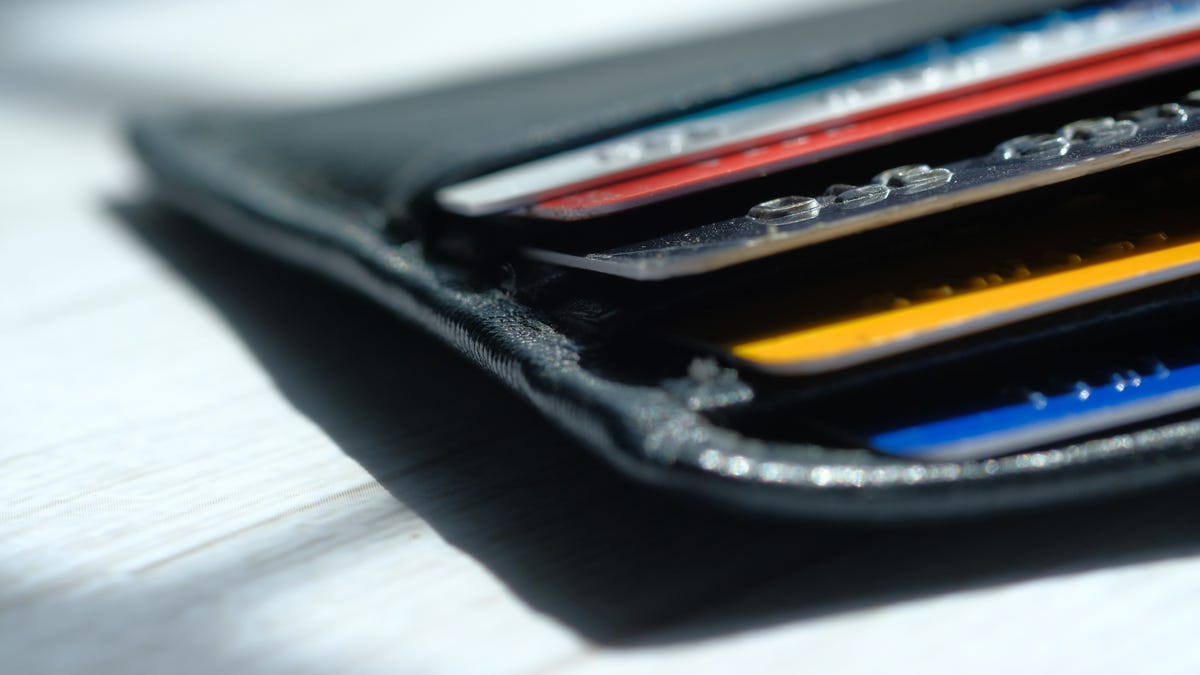 Why You Can Trust CNET
Why You Can Trust CNET Advertiser Disclosure
How Using a Debit Card Instead of a Credit Card Could Help You Spend Less
Several studies have shown how credit cards can encourage extra spending.

When you use a credit card, you're actually borrowing money, not spending it.
There are a lot of upsides to credit cards. They're easy to use and accepted by virtually every merchant. They offer simple financing for big purchases and many will even give you money back on your spending.
The convenience and benefits of credit cards come with risks, however -- most notably finance charges on carried balances. Interest on credit card debt can be brutal, but the risk of overspending could be just as harsh. Several studies have shown that credit cards increase consumer spending. If you're looking for a way to cut expenses, learn why curbing your credit card use could help.
For more, learn the biggest credit mistakes to avoid and what to do if you can't pay your credit card bill.
Why should I consider using my credit card less?
In short, to avoid overspending. When you use a debit card you're using money that you already have -- you are living within your means. When you use a credit card, you're not actually spending your own money -- you're borrowing someone else's to make your purchase.
The amount of money you have in the bank (or on your prepaid debit card) immediately drops when you spend it, a psychological factor that can counter the urge to buy more than you can afford.
With a credit card, the actual payment for the purchase is delayed, and that payment can be postponed, again and again. That "decoupling" of the purchase from the payment can make it psychologically easier to spend more money and lead to overspending and growing household debt.
While credit cards can decrease the "pain of payment," they might also reward the willingness to spend.
A brain study from researchers at MIT seems to support the idea that credit cards can "push the gas pedal" on spending. Scientists found that credit card spending activates a part of the brain called the striatum that's linked to reward perception and drug addiction. Similar purchases made with debit cards or cash did not have the same impact.
Your credit card purchases aren't as obvious as your debit card purchases
When you use a debit card, your purchase will appear shortly in your bank account activity and your account balance will drop by however much you spent. On your online bank account page, each debit card purchase will be listed along with all your other withdrawals and deposits, including checks you've written, Zelle transfers, direct deposits and electronic bill payments.
And then comes one monthly sum for your credit card payment. Sure, each credit card use is listed in your credit card account, but that's one step removed from where you're making actual payments and receiving income. A regrettable impulse purchase is more likely to encourage reflection on your spending when it's listed right beneath your monthly rent payment.
In a 2008 study, researchers Priya Raghubir and Joydeep Srivastava found that consumers are likely to spend less when they consider each individual item purchased, rather than the total amount of a group of disparate items.
When is a credit card better than a debit card?
First, a credit card is likely your best option when you don't have funds available for a purchase. If you can pay your debt back soon, and you need money now that you don't have, a credit card is your answer.
Second, use a credit card if you want rewards on your spending. There's a huge array of options for rewards credit cards, focusing on spending categories like travel, restaurants and gas. If you're disciplined with your spending and budget, rewards cards can provide significant returns and benefits.
You'll also want to use a credit card for purchases occasionally if you are trying to build credit. Paying back credit card debt on time is one of the easiest ways to establish a good credit score.
Finally, if you're making a large purchase or buying from an unknown seller, a credit card will provide more purchase protections than a debit card. Credit cards often extend warranties for a year or more and include better protections against fraud.
While credit cards provide plenty of benefits, understanding the risks of overspending associated with credit cards will help you make the decision on when to leave it in your wallet. Whether or not you cut spending by decreasing the use of your credit cards will ultimately depend on lots of factors like your personal behavior, psychology and financial situation.
For more on credit cards, learn how to pick and use your first credit card and learn what's considered a good credit card APR now that interest rates are rising.

